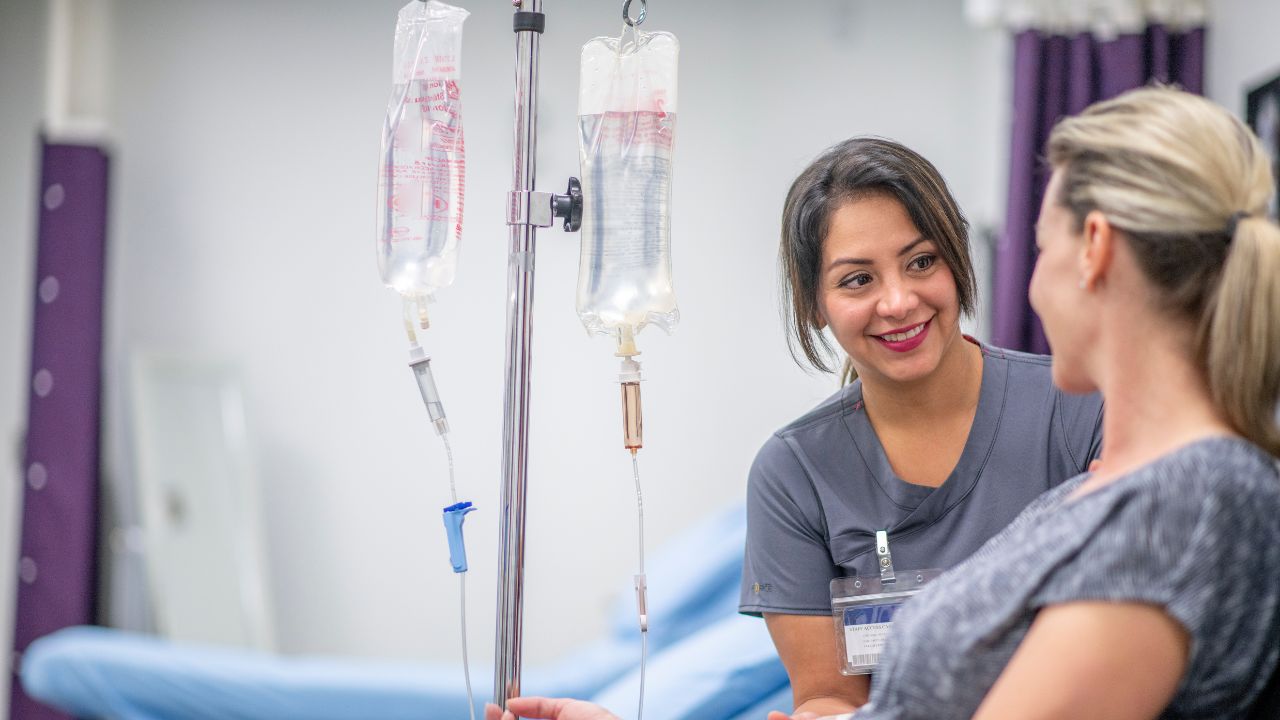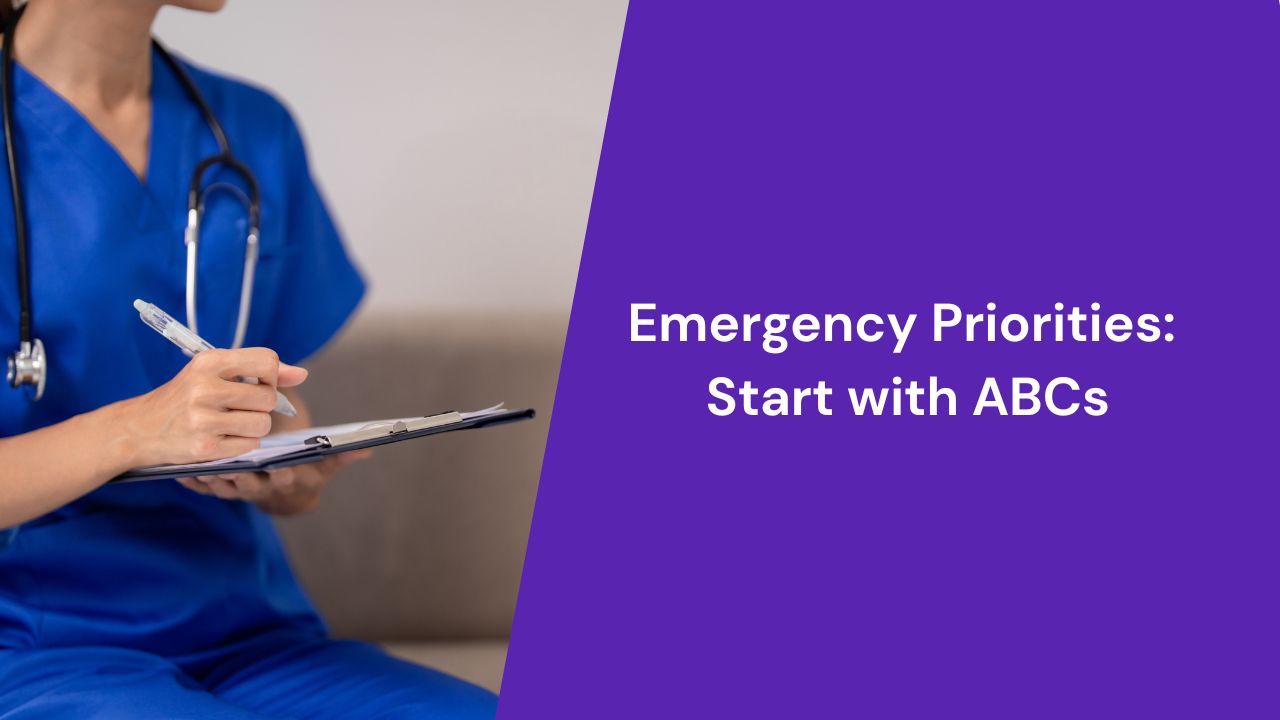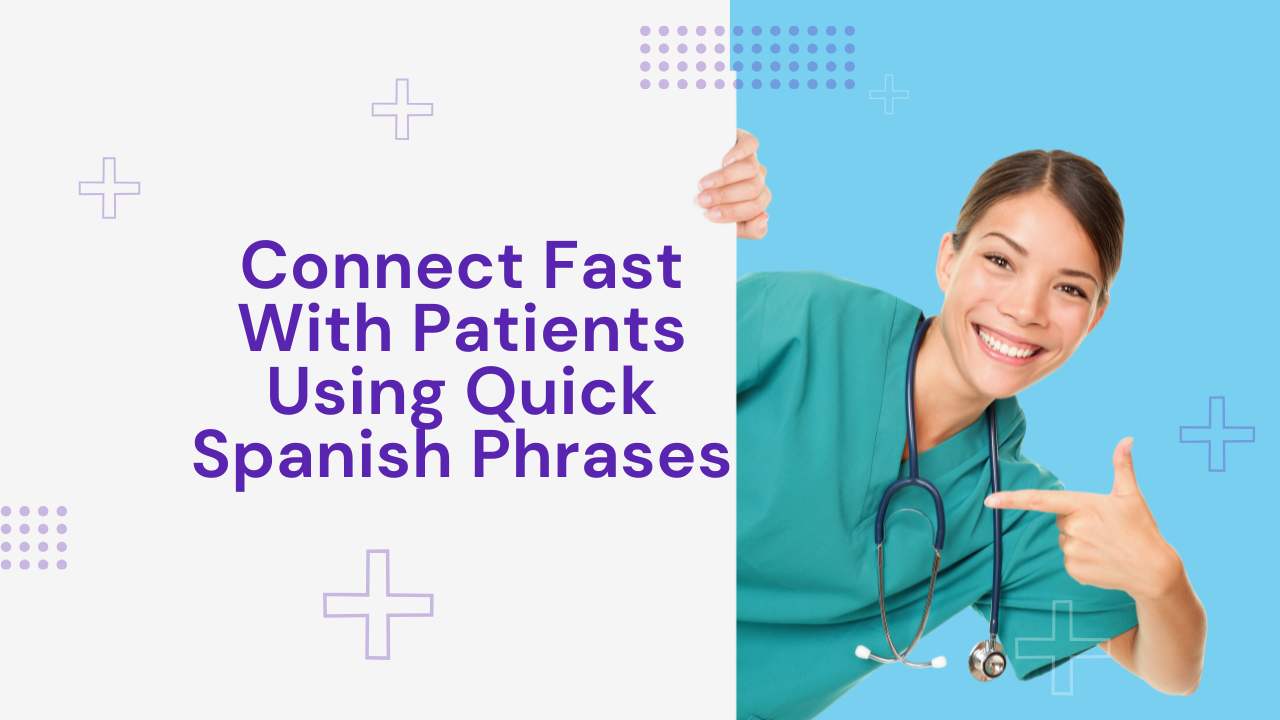The world of nursing involves layers, regulations, and continuing education. Each nurse practices within a defined scope that reflects their education, licensure, and state regulations.
Licensed practical/vocational nurses (LPNs or LVNs) play an integral role in patient care. However, their scope of practice is generally more limited than that of a registered nurse (RN), largely due to differences in nursing education and training. These distinctions are often reflected in job responsibilities, autonomy, and earning potential.
One common area where scope-of-practice questions arise is intravenous (IV) therapy. While many LPNs work with and around IVs as part of their daily duties, the ability to initiate, administer, or manage IV therapy may require additional training or certification, depending on state law and employer policy.
This guide explains what LPN IV certification is, how to get it, and how it may affect your career options, including access to certain roles, settings, and PRN opportunities.
Quick facts about LPN IV certification
- Who it’s for: Licensed practical/vocational nurses
- What it is: A post-licensure credential that may expand IV-related responsibilities where allowed
- Typical format: Classroom theory instruction plus hands-on skills or lab components
- Common topics: IV fluids, pharmacology basics, venipuncture, infusion monitoring, complication prevention
- Important note: What an IV-certified LPN can do depends on state board of nursing regulations and employer policy
Wait, I thought LPNs already manage IVs?
In many cases, they do.
In fact, most states allow LPNs to work with IV therapy in some capacity as part of their core education and licensure. This may include tasks such as:
- Monitoring IV lines
- Assisting patients with IV equipment
- Troubleshooting pump alarms
- Preparing IV access for an RN to administer medications
However, the ability to initiate IV lines, administer certain IV medications, or independently manage IV therapy varies by state.
- Some states include IV therapy in the standard LPN curriculum
- Other states require additional IV certification
- Others restrict certain IV functions to RNs only
For this reason, it’s essential for LPNs to understand both their state’s scope-of-practice rules and their employer’s policies before performing any IV-related duties.
In settings where additional training is required, LPN IV certification may be necessary to expand responsibilities.
What is IV certification for LPNs?
The IV certification for LPNs or LVNs is a post-license credential that they can earn to demonstrate additional training and competency in intravenous (IV) therapy.
This certification is designed to prepare LPNs to safely perform certain IV-related tasks that may not be fully covered in their initial nursing education, depending on state requirements.
Once certified, LPNs may be permitted to take on expanded IV responsibilities, such as initiating peripheral IV lines or administering specific IV fluids or medications. As a result, IV certification can increase an LPN’s flexibility across care settings and potentially make them a more competitive candidate for certain roles.
IV certification typically involves a combination of classroom-based instruction and hands-on skills training. Coursework often covers:
- IV pharmacology basics
- Fluid and electrolyte balance
- Venipuncture techniques
- Infusion equipment
- Identification and management of IV-related complications
How to get the LPN IV certification
The exact requirements will depend on the state you practice in, but the process typically follows a similar path.
1. Check your state board of nursing and employer policies
Save yourself potential trouble down the line by doing your research first.
Don’t enroll or pay for any course until you’ve confirmed with your state board of nursing that IV certification is either required or even recognized.
2. Choose an approved IV therapy course
In the states that do require IV certification, some state boards maintain a list of specific, approved course providers, while others will accept nationally recognized certifications.
Either way, this knowledge should guide how you decide which course to take.
3. Complete the course
Most courses will include classroom theory instruction and hands-on skills training. Hour requirements vary widely. For example, you may be signing up for 24 hours of theory plus 6 hours of clinical training, or more in some states.
4. Pass the exam and skills demonstration
Most courses include both a written exam and a skills demonstration in order to obtain certification. You’ll need to coordinate with the course provider and your state nursing board to establish how to get your certification registered.
5. Maintain or renew IV certification
The maintenance or renewal requirements for your IV certification will depend on your state and your certification program; 2-3 years is common, but not a universal standard.
Where can LPNs take IV certification classes?
Quick answer: Your local community college, vocational or technical school, hospital, or healthcare facility may offer IV therapy certification courses.
Several IV certification resources are also available online, offering electronic or virtual opportunities. Here is a quick summary of a couple of online resources:
- Pedagogy Education: This online education platform offers state-specific IV certification courses and accredited continuing education hours. They list their approved provider numbers for several state boards.
- National Association for Practical Nurse Education and Service (NAPNES): This course is offered online, and the exam is administered through an online portal. NAPNES explicitly states this certification is valid for 3 years, after which renewal is required.
Reminder: Please check with your board of nursing to confirm approval or acceptance of a certification program before paying for a course/test package with any provider.
What can an IV-certified LPN do?
LPNs work with and around IV therapy in every state, from troubleshooting beeping infusion pumps to assisting ambulating patients with IV poles. In many settings, LPNs may be responsible for monitoring IV sites and equipment as part of routine patient care.
With IV certification, LPNs may be allowed to expand these duties.
Depending on state laws and facility policies, IV therapy-certified LPNs may be allowed to demonstrate competency in the following areas:
- Identifying the role of fluid and electrolyte imbalance in homeostasis
- Understanding the pharmacology principles of IV therapy
- Demonstrating knowledge of the different IV fluids and their clinical uses
- Operating IV pumps and related infusion equipment
- Calculating the flow rate of infusions
- Performing venipuncture to initiate peripheral IV access
- Identifying potential complications and adverse reactions from IV therapy
Reminder: IV responsibilities are tightly regulated in most states; even with IV certification, not all LPNs in all states are permitted to perform all of the duties listed above.
Does IV certification increase LPN pay?
IV certification does not guarantee a pay increase for LPNs. In many cases, earning an IV certification may not result in an immediate raise at all, particularly in facilities where IV therapy is already built into the standard LPN role or tightly restricted by policy.
That said, IV certification can still be valuable. In some states and settings, it may expand the types of roles or shifts an LPN is eligible to work. This expanded eligibility may lead to access to higher-paying positions or PRN shifts, depending on employer needs and local regulations.
How IV certification can help your LPN career
While IV certification doesn’t guarantee higher pay, it can broaden an LPN’s career options in meaningful ways. In states where IV therapy isn’t embedded in the standard LPN curriculum, additional IV training may help nurses qualify for a wider range of roles and settings.
Where does an IV-certified LPN/LVN work?
For some LPNs, IV certification can support access to:
- More acute-care environments that rely on LPNs for IV-related tasks
- Long-term care or skilled nursing facilities that administer IV medications or fluids
- Home health or infusion-adjacent roles where IV competency is required
- PRN shifts that list IV experience as a preferred or required qualification
Because PRN roles often prioritize flexibility and demonstrated competencies, LPNs with specialty certifications may be better positioned to pick up shifts across multiple facilities (where state law and employer policy allow).
Many of these settings, particularly long-term care and home health, also offer PRN opportunities. For LPNs seeking more flexible schedules, IV competency may help expand eligibility for certain shifts or roles.
FAQs about IV certification for LPNs
These frequently asked questions address common concerns about IV certification for LPNs, including scope, duration, and state variation.
How long is IV certification good for?
The length of time an IV certification remains valid varies by program credential and state. Most IV therapy certifications for LPNs are valid for 2 or 3 years and can be renewed through continuing education, refresher courses, or re-examination. Always verify your specific renewal requirements with your certifying organization and state board of nursing.
Can LPNs administer IVs?
In many states, LPNs can perform some aspects of IV therapy. But what “perform IVs” includes varies significantly.
Some states permit LPNs to start or administer IV therapy with additional certification or training, while others restrict IV procedures only to RNs or under close RN supervision. The state laws, state board of nursing regulations, and facility protocols ultimately determine this.
Can LPNs do IV hydration?
IV hydration may be permitted within an LPN scope of practice in some states and circumstances, especially with IV therapy training or credentialing. In other locations, IV hydration may be restricted to RN administration only or RN supervision.
Because IV hydration frequently involves medication and IV access, LPNs should consult their state board of nursing.
Can LPNs insert IVs?
While in some states, LPNs have authorization to insert peripheral IVs after completing approved IV therapy training, other states prohibit IV insertion for LPNs completely. And even in states where they can, employer policies may restrict this practice. LPNs holding IV certification are not above state regulations about scope of practice.
Can LPNs start IVs in New York?
In New York, IV practice is more restrictive for LPNs than in many other states. LPNs cannot generally insert an IV line regardless of their additional training. For more information, LPNs practicing in New York should contact the New York State Board of Nursing or their employing institution to identify their current scope of practice.
Final takeaway
IV certification can be a useful addition to an LPN’s skill set, but its value depends on state scope-of-practice rules, employer policies, and local demand. While it doesn’t guarantee higher pay, IV training may expand the types of roles, settings, or shifts an LPN is eligible to work, especially in long-term care, home health, and certain PRN environments.
If you’re considering IV certification, start by confirming your state board of nursing requirements, then evaluate whether additional IV skills align with your career goals and the types of roles available in your area.
If you’re ready to explore opportunities that match your experience and credentials, you can browse available LPN PRN shifts on Nursa.
Availability and requirements vary by location, so checking local listings can help you see where IV experience may be preferred or required.
Sources:
- Vascular Access Certification Corporation: Frequently Asked Questions (FAQs)
- IV Therapy Certification | NAPNES
- California Board of Vocational Nursing and Psychiatric Technicians: Post-Licensure Certification and Post-Licensure Course Providers
- Pedagogy Education: Accreditation Statements
- New York State Board for Nursing Guidance for Licensed Practical Nurses (LPNs) Who Provide IV Therapy Services to Patients | Office of the Professions











.jpg)
.webp)

